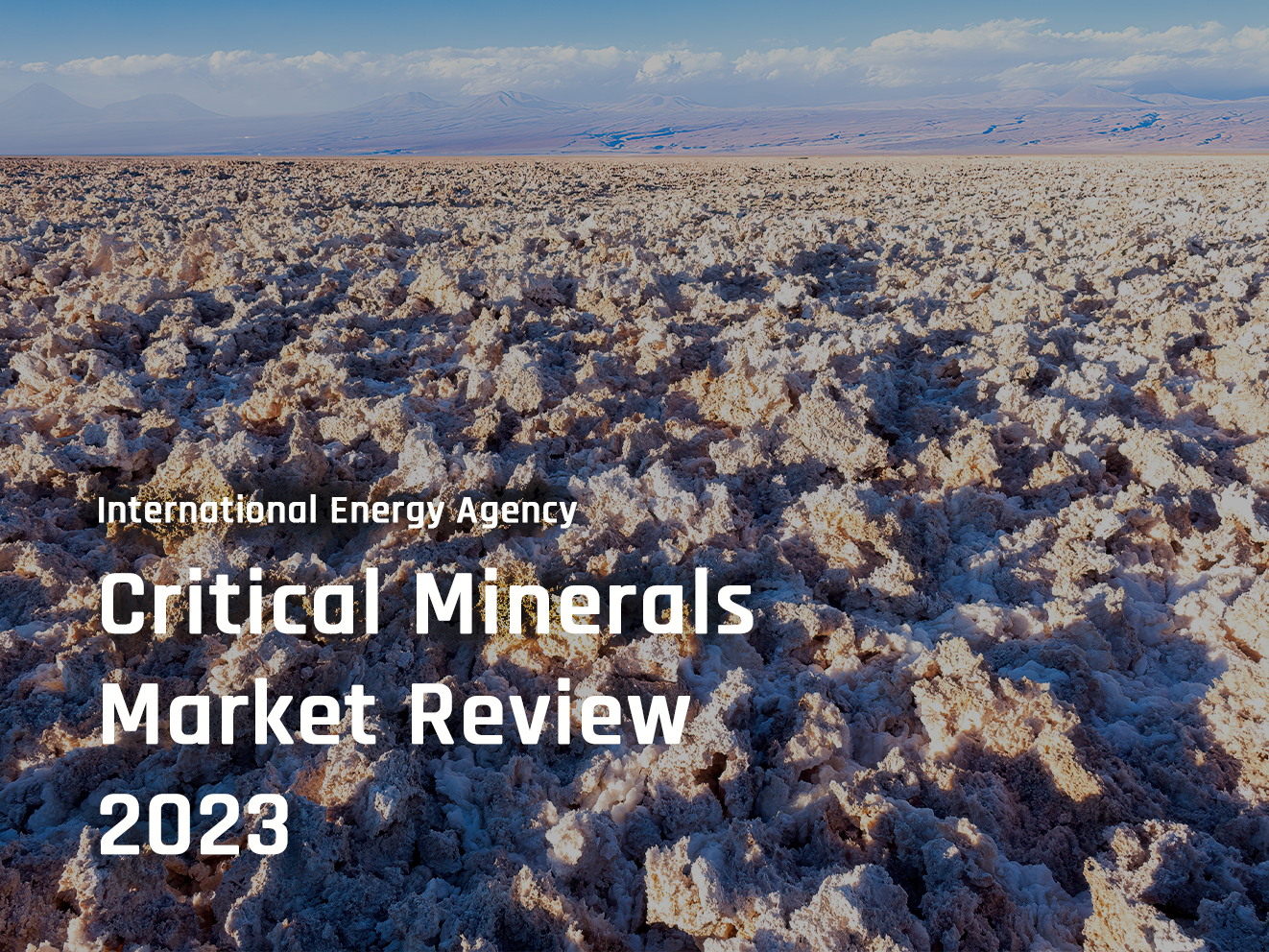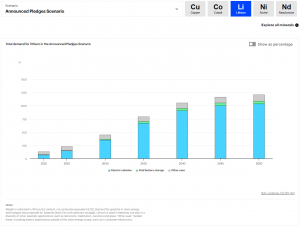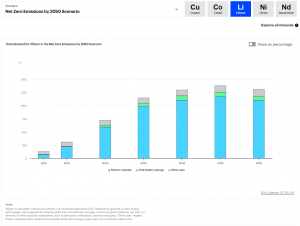
13/07/2023
New IEA Report: Clean Energy Technologies Driving Demand for Lithium
In July 2023, International Energy Agency (IEA) released its inaugural “Critical Minerals Market Review”, along with their new online data explorer. Between 2017 and 2022, the demand of lithium (Li) tripled, primarily due to the energy sector’s reliance on it. According to the report, the market for energy transition minerals is poised for continued rapid growth, placing increasing pressure on the global mining industry.
Looking in particular at the Li price fluctuations, the study reports increases in 2021 and early 2022, accompanied by strong volatility. However, the latter half of 2022 and the beginning of 2023 saw more stable trends, albeit still remaining above historical averages.
Not unexpected, investment in the development of critical minerals, particularly Li, recorded a significant surge of 30% in 2022, building upon a previous increase of 20% in 2021. The IEA analysis examined the investment patterns of 20 major mining companies actively involved in the production of minerals essential for the energy transition. It revealed a substantial rise in capital expenditure specifically allocated to critical minerals. This upward trend can be attributed to the favourable momentum propelling the adoption of clean energy solutions, such as the most recent EU Regulation on Batteries and Waste Batteries. According to the IEA analysis, companies specialising in Li development witnessed 50% rise in their investment spending. Fuelled by the rising demand of electric vehicles, large industrial groups are competing now in a quest to secure mineral supplies: General Motors announced a 650 million USD in Lithium Americas, while Tesla confirmed already plans to build a Li refinery in Texas (USA).
Along with its ‘Critical Minerals Market Review 2023’, the IEA also launched the IEA Critical Minerals Data Explorer, an interactive tool that facilitates access to the agency’s projection data.
- Total Li Demand in the Announced Pledges Scenario
- Total Li demand in Net Zero Emissions by 2050 scenario
LiCORNE Project and EU’s Vision for the Energy Transition
The IEA analysis conclusions raise the concern of the diversity supply. The LiCORNE project was launched at the encounter of European aspirations to advance the energy transition. The project aims to increase the European Lithium (Li) processing and refining capacity to produce battery-grade chemicals from ores, brines and off-specification battery cathode materials. Over a span of 48 months, from the 1st of October 2022 to the 30th of September 2026, eight research and development centres in Europe will investigate no less than 14 new technologies for extracting, recovering and refining Li.
Currently in its first year, the LiCORNE project completed the task of characterising and providing materials for the R&D activities. Most of the materials are sourced from European resources, including spodumene and Li-rich mica from mines in France and Austria, and geothermal brine sampled from the Upper Rhine Graben (France and Germany). The synthetic brine is prepared in UK. Only continental brine and off-specification cathode material originate from non-European countries – Chile and Korea.
For more information, refer to the detailed article, and explore the available Li resources in Europe.

